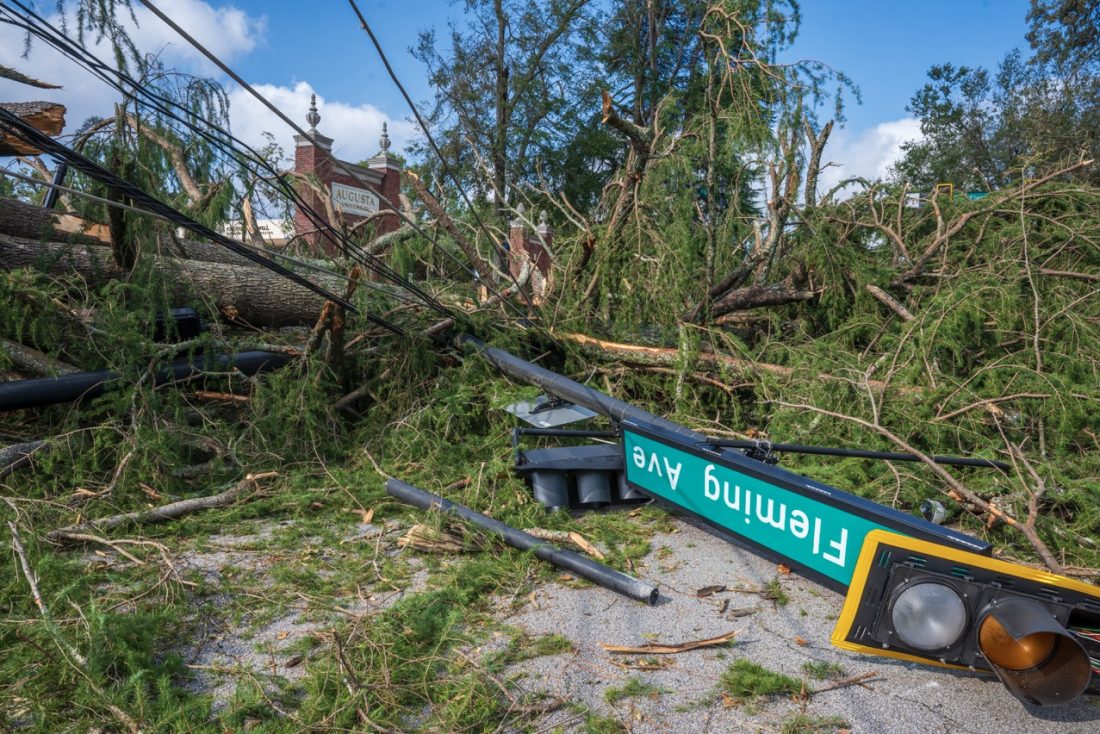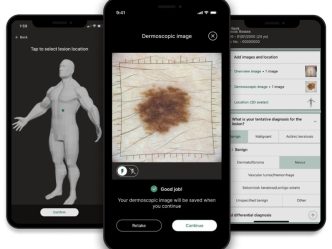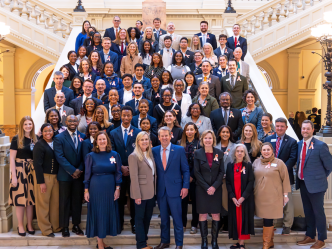When Joe Webber, the director of AU’s Office of Critical Event Preparedness and Response, went to bed on Thursday, Sept. 26, 2024, he, like many in Augusta, slept with one eye open. He was in for a rather sleepless night.
“I had my laptop out, and I was tracking, basically in a chat room with emergency managers and National Weather Service folks,” Webber recalled. “And then obviously, when we got direct impact, I had to go get my kids out of their rooms, get my daughter who sleeps upstairs. When it really hit our area, I had three kids and two dogs in my bed. I’m on the laptop, and we’re hearing the trees crashing.”
After a week of monitoring the storm that became Hurricane Helene through regular National Weather Service briefings that intensified and multiplied as the week wore on, Webber and team were still working under the assumption Helene would pass Augusta to the west, as the models predicted.
Even so, out of an abundance of caution, AU President Russell T. Keen made the decision during a cabinet meeting on Sept. 26 to cancel classes the next day. It was already raining during that meeting, much earlier than anticipated, but no one could have predicted what those living in and around the CSRA woke up to that Friday morning.
“When Karen and I think back on the events surrounding Hurricane Helene, we can’t help but be amazed at the resilience and compassion shown by our students, faculty, staff, alumni and the citizens of this city. In the wake of one of the most devastating natural disasters to impact our area, so many came together to support one another, and that spirit of unity was truly a testament to our shared commitment to changing lives,” said Keen. “We were inspired by those who stepped in to support us, like Jim Syfan and his family, who sent supplies, and our friends from across the University System of Georgia, who sent crews to help and opened their campus for our students. But perhaps most moving was seeing our campus community working together – cleaning debris from homes and yards, clearing our campus and collecting supplies for those in need. That is the Augusta University family at its best: caring for one another and for our community.”
The aftermath
Webber was up at first light surveying the situation at his own home and quickly sprang into action, using a track hoe that just happened to be on loan from a neighbor. That machinery and neighbors equipped with chainsaws helped him cut his way to AU’s campus, an hours-long process, where it was all-hands-on-deck for days after the storm wreaked havoc.
“Obviously, it’s a gut punch, and it’s terrible,” Webber said of seeing the Summerville Campus that morning. “And there were a lot of emotions, but at that particular point in time, I was focused and didn’t have a whole lot of bandwidth for emotions. To absorb the impact of the history on campus – we lost champion trees, and I’m a forester – but I didn’t have the emotional availability then, because there were life safety issues.”
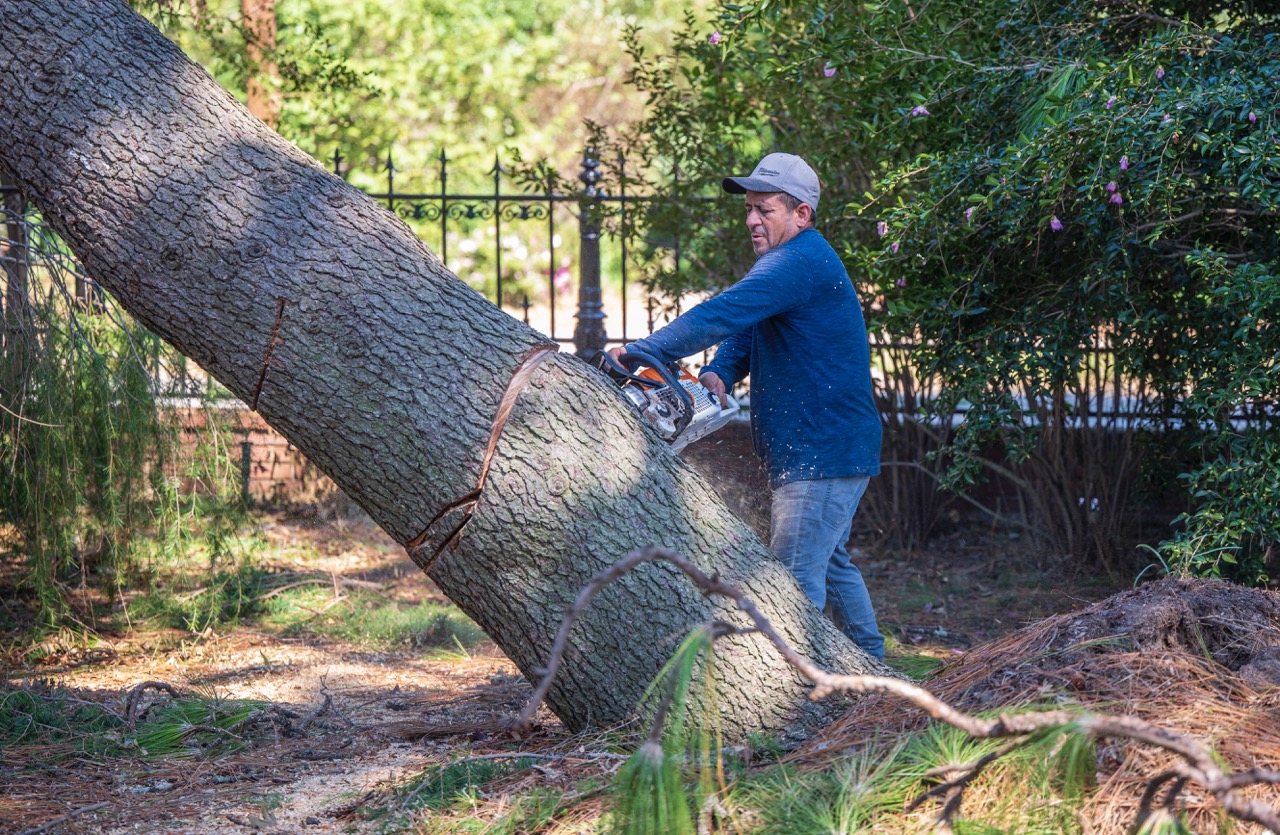
There were safety concerns and numerous logistical issues to resolve to ensure the well-being of many, but the students who lived on campus were the first priority.
Susan Davies, PhD, then executive vice president for Enrollment and Student Affairs, was safe at home but unreachable due to no cell service. Her team tried to contact her but to no avail. The team had grown increasingly worried when everyone else checked in, but she didn’t respond to their texts. She vividly recalls the deep sense of comfort she felt when her colleague, Scott Wallace, PhD, was able to get a call through to inform her that he was on his way to her house to locate her.
Davies and Wallace eventually made their way down Wrightsboro Road to the Health Sciences Campus, where the Student Affairs team began to assemble. They immediately visited residence halls to check on students, knocking on doors. They worked with Brad Warren, dean of AU Libraries, to open Greenblatt Library, providing students with power, air conditioning and internet access.
“One of the things that impressed me most about our campus community is that our student leaders really stepped up to take care of their peers. Our resident assistants had a lot of work on them. I think they’re the unsung heroes in all of this,” recalled Davies. “They were coming up with different activities for their peers to do to pass the time, answering all of their questions and knocking on doors to wake students up and inform them of the impending evacuation. It was a lot of pressure on our student leaders to be able to lead, when they were dealing with their own emotions and reactions to this disaster. I’m really proud of them.”
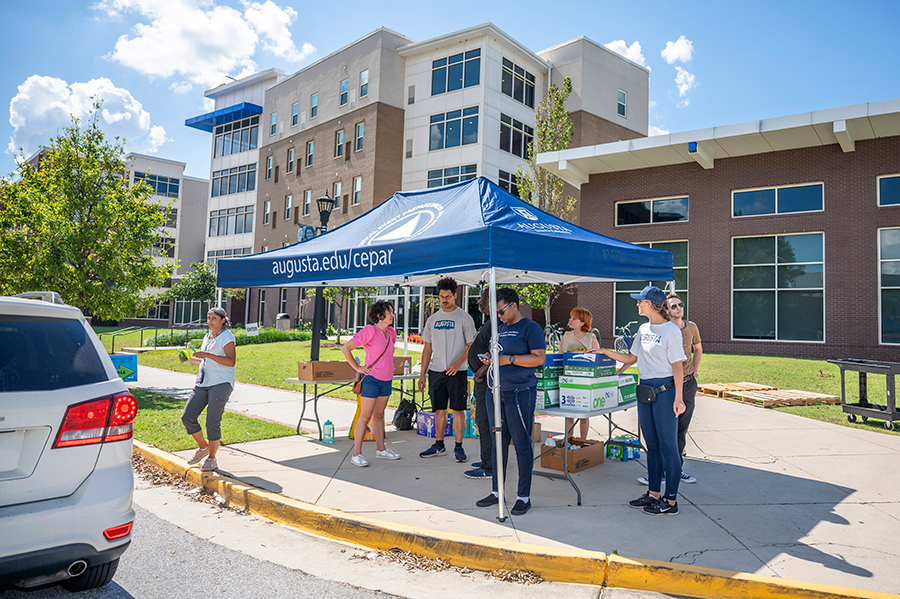
As the weekend progressed and it became clear that there would be interruptions with the city of Augusta’s water supply, the decision to evacuate students as soon as possible was confirmed, which Davies had already been working to arrange. After coordination, the team loaded buses on Sunday, Sept. 29, to move those students who had remained on campus to Gordon State College in Barnesville, Georgia, a fellow USG institution, until it was safe for them to return to Augusta.
The student leaders working with Davies were part of the larger team of AU faculty and staff who were able to show up and step up during this critical time.
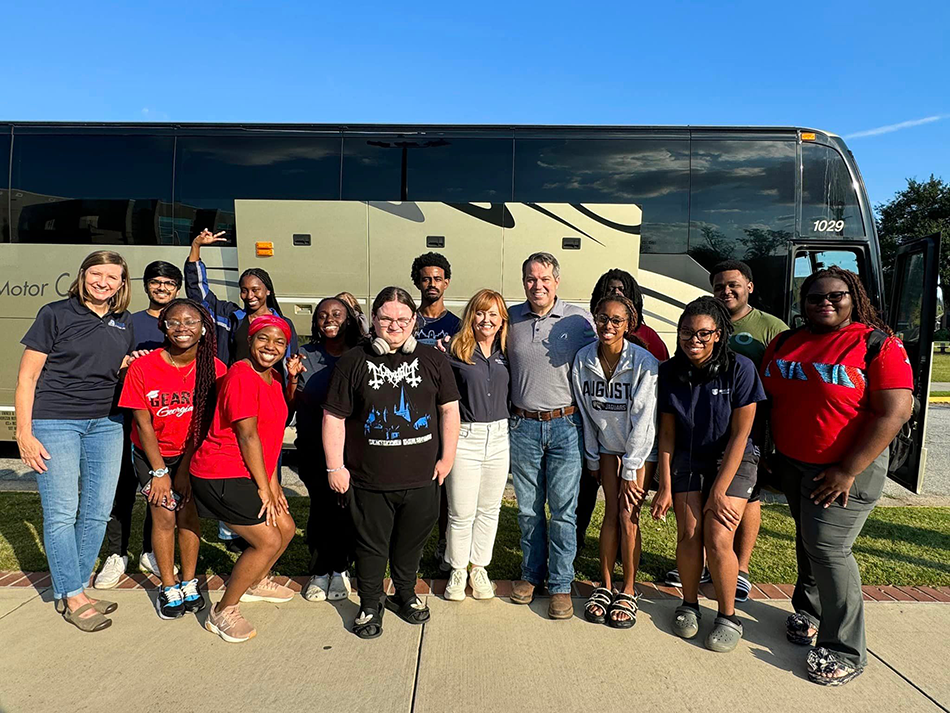
“The people who were able to get on campus did so with the attitude, ‘Whatever needs to be done, we’re willing to do it.’ It was, ‘What is the job? And how can we take care of it?’” said Webber.
Facilities Services had the enormous task of inspecting buildings and tackling hundreds of trees down on AU’s campuses, especially the Summerville Campus and Forest Hills Golf Course.
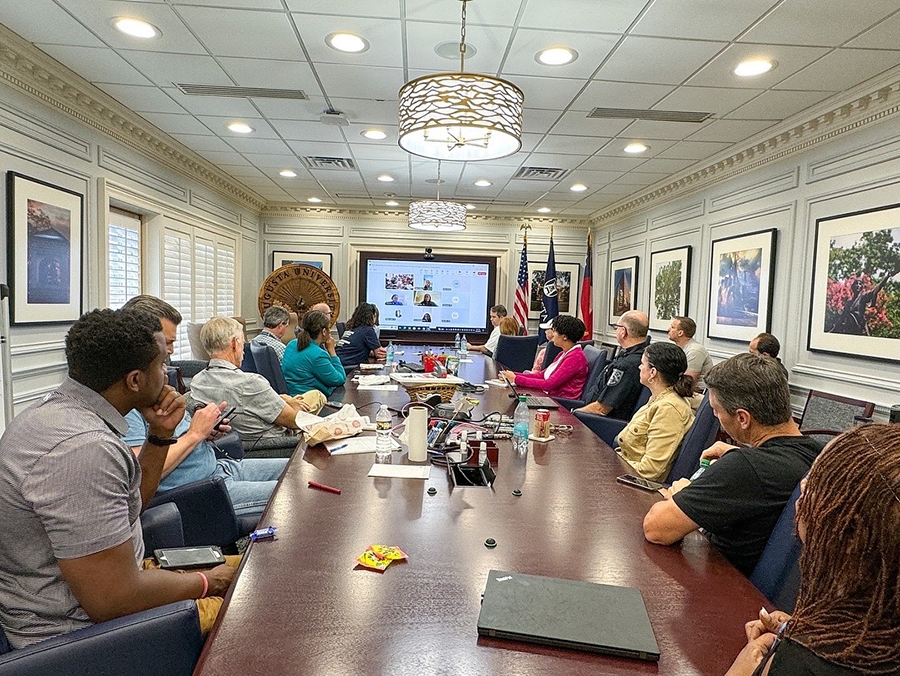
Road to recovery
Looking back on the last year of recovery, Webber said it’s all about introspection. He encourages all students, faculty and staff, as well as departments, to make the assessment – ‘Am I more prepared today than yesterday or one year ago?’”
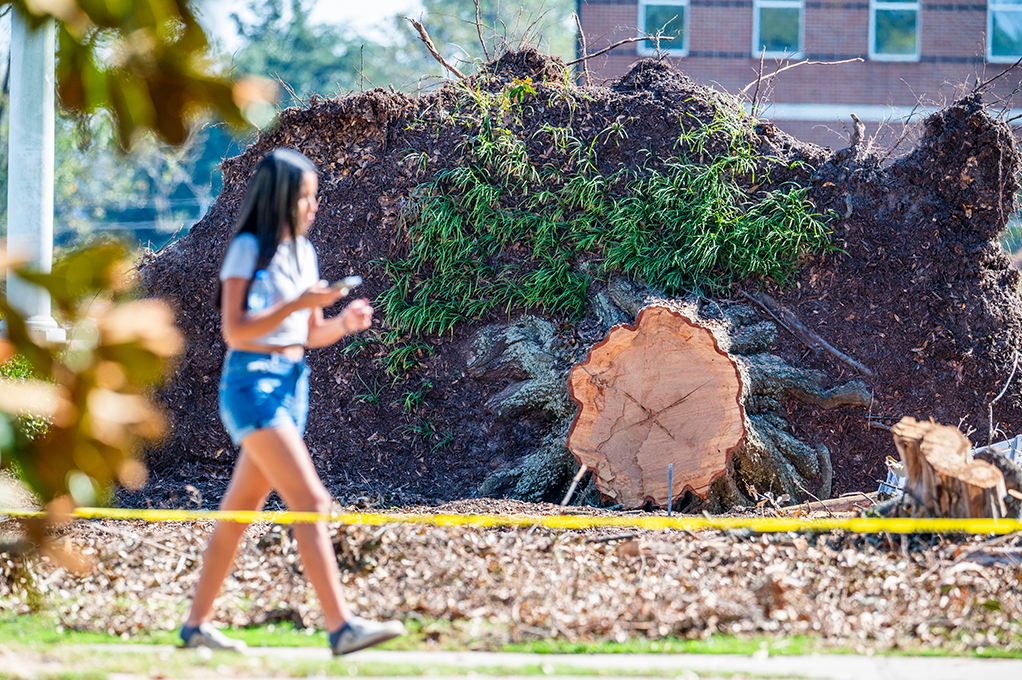
“‘What have I done differently in the past 11 and a half months? Am I any more prepared for, let’s say, a severe storm that’s supposed to turn to the west and doesn’t, now than I was then?’ That’s the hard question we have to ask ourselves and do one thing every month. There are programs out there that can guide you through being more prepared, but the answer is taking accountability and making a commitment,” said Webber, whose team says those steps can range from something simple like starting a small collection of water and non-perishable food to something more involved like installing a generator.
One year later, Webber remains inspired by the teamwork of the AU community in the aftermath of the storm.
“My main takeaway from the experience of Helene, from leading up to it and all the way through, is the amount of dedication that was demonstrated by people to the institution and what Augusta University means to our faculty, staff and our students and to our community,” he said. “The dedication that was demonstrated to ensure Augusta University was able to resume as quickly as we possibly could made me extremely proud to be a part of the team. And that continues today.”
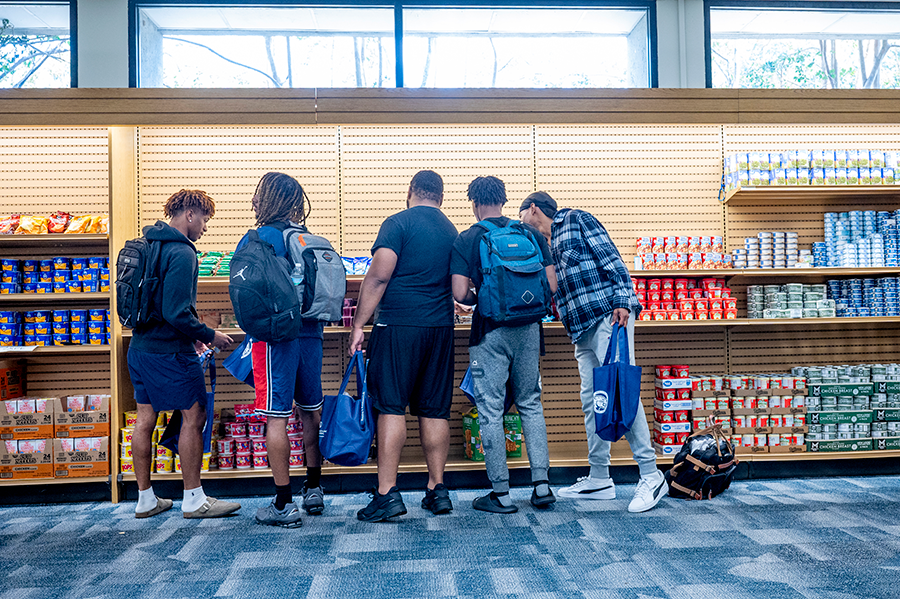
 Augusta University
Augusta University
